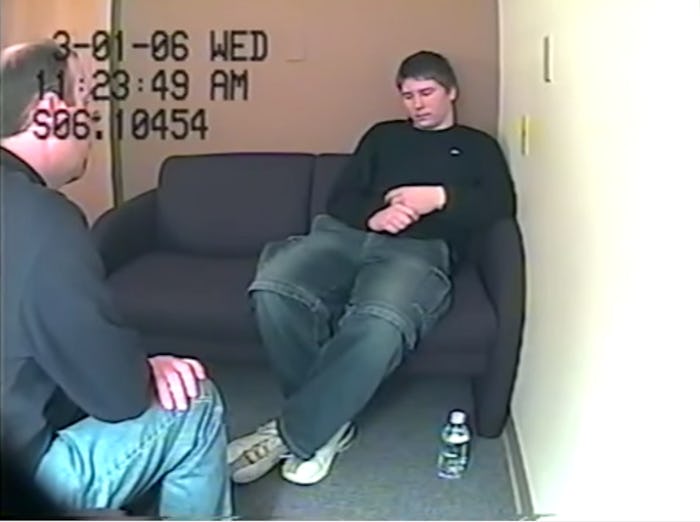Entertainment
Steven Avery's Lawyers Respond To Brendan Dassey's Overturned Conviction
When Netflix' Making a Murderer hit our screens last winter, it was an instant binge-watchable phenomenon. By the end of the 10-episode series, many were hoping that the show would lead to overturned convictions for its subjects. And this week, that's what's happened — at least for Brendan Dassey. Now, Steven Avery's lawyers have responded to Brendan Dassey's overturned conviction, and they're definitely pleased.
If you need a brief refresher, the documentary Making a Murderer chronicled the murder of Theresa Halbach, and the subsequent investigation and trial that lead to the conviction of Steven Avery and Avery's nephew, Brendan Dassey. This wasn't Avery's first conviction, either: he had previously spent 18 years in prison after a wrongful conviction for the sexual assault and attempted murder of Penny Beernsteen. He was fully exonerated by DNA evidence in 2003 and released shortly after. Theresa Halbach was murdered in 2005.
The case and its aftermath took place predominantly in Wisconsin, and the documentary was filmed over the course of 10 years by filmmakers Laura Ricciardi and Moira Demos. Just two years after being released from prison after a wrongful conviction that hit the headlines in Wisconsin's Manitowoc County, reporters found themselves after Avery once again when he was re-arrested for the murder of a photographer named Theresa Halbach, who had last been seen alive on his property.
As the evidence began to stack up against Avery, he and his family started to suspect that the Manitowoc County Police Department was attempting to frame him, since he had a $36 million dollar civil suit pending against the state for his wrongful conviction. Throughout the documentary, evidence purporting Avery's guilt was brought into question, as was the conduct of the Manitowoc County police. But what has perhaps lingered the longest in the minds of viewers wasn't the treatment of the documentary's main subject at all; rather, what happened to his then-16-year-old nephew, Brandan.
Brandan Dassey, now 26, was sentenced to life in prison along with Avery when he was convicted of helping his uncle murder Halbach. The interrogations by police that ultimately lead to the conviction were immediately brought under fire when Making a Murderer aired, as it appeared that Dassey was being coerced by law enforcement. He was also taken out of school and questioned alone by detectives as a minor, which brought the conduct of the investigation into question.
In court documents, as well as statements from Dassey's family, it's stated multiple times that he was enrolled in special education classes at the local high school and had an IQ that was "borderline the deficiency range," implying that he may not have understood what was happening throughout the investigation and did not understand his rights or what his words meant. Clips from interviews and interrogations, as well as phone calls to his mother, that were featured in Making a Murderer support the idea that Dassey believed he was involved in the investigation to help prove his uncle's innocence — not that he, himself, was a suspect.
Over the last six months, the case depicted in Making a Murderer has continued, and attorneys who worked on the case have continued to stand in support of their clients, particularly in the case of Dassey. Steven Avery's attorneys, Jerry Buting and Dean Strang (who became something of a pop culture phenomenon himself), commented on Dassey's case in an exclusive statement to Bustle, saying that they are "very grateful" for the overturned conviction and added:
Brendan’s statements were not only involuntary, they were completely contradicted by the lack of physical evidence. This shows the folly of coercing a statement from a vulnerable target. It also vindicates what I have said for years: that law enforcement in the Teresa Halbach investigation was willing to go to extreme lengths to convict Steven Avery, the only person they seriously considered to be a suspect.
Now Dassey and his family will have to wait and see if anyone involved with the case chooses to file an appeal. The prosecution has 90 days from the ruling to file a retrial before Dassey can be released. He has, however, been moved to a different unit of the prison in preparation for his possible release, which could be sooner than that 90 day window if the prosecution doesn't want to appeal the court's decision to overturn his conviction.
